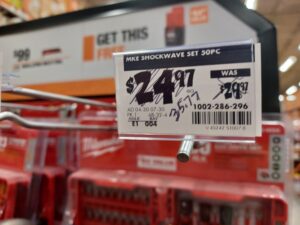“Prices for producers have grown a lot more slowly over the last year. Companies should pass those savings on to consumers,” White House Press Secretary Karine Jean-Pierre. “That’s why taking on price gouging has been part of the President’s economic agenda.”
It’s no secret that since the COVID-19 epidemic started in 2020, businesses of all sizes have tried to make up their profit deficits by raising prices and using inflation as the cover story for their greedy behavior.
Business experts and economists have created a new term for this greed by calling it a strategy of “price over volume” (POV) to boost profit margins, even as inflation is subsiding.
It’s not unexpected that corporations want to boost profits in any way they can, even when consumer demand is stagnant or falling. However, when businesses of all sizes rely on price gouging, it works oppositely: Price gouging contributes to inflation.
Unfortunately, price gouging is difficult to prosecute. Federal agencies find it hard to prove, and consumers cannot boycott the offending businesses because they need the goods.
Price gouging is also as American as apple pie. Like war profiteering and selling watered-down whiskey or chickens filled with water to make them heavier, price gouging is what corporations do when they are not kept in check by anti-trust and other punitive regulations.
Price Gouging at the Home Depot
Price gouging happens in businesses or corporations of any size if they think they can get away with it. And this is the main reason it occurs: they can get away with it. 
Here is an example from Home Depot. I served as a cashier there for about one-and-a-half years. One slow night during my shift, I talked to the merchandising night crew, who was busy changing prices on some Milwaukee-boxed battery-powered tools on the sales floor. The tools had been locked in cages for about a year to prevent theft. The merchandising crew told me that most of the tools had been locked in the cages for about one year, but they raised prices anyway.
These Milwaukee battery tools were about a year old, and all the inflation present when they were assembled was already reflected in the old price. That included increases in raw materials, labor costs, packaging, transportation from China, and other shipping costs. 
There were five items I noted. The price increases ranged from 40% to 1.5%, and the average price increase was about 20% on these items alone.
In a single store with a few thousand SKEW items, these price increases in one night on only items I noted in a single department in one store do not even register on the $157 billion in Home Depot annual sales. But since this probably happened in all of the 2,322 stores in the company chain, this anecdotal event represents billions in new revenue from old goods on the shelf, which had nothing to do with current inflation trends.
So, why were prices being raised on these Milwaukee battery tools by about 20%? Because Home Depot wanted to boost sales revenues and bottom-line profits to boost its share price.
It was a simple task. It was happening at night. No one could see it; customers would have no choice except to buy the tools or shop elsewhere. Even better, thanks to monopoly capitalism, Home Depot customers would have few other places to shop except Lowes, Ace Hardware, Harbor Freight, or online, if they could even find the tools they needed.
But if contractors needed the tool that day, as many do, they would have to ante up, buy the tool at the higher price, and complain that “everything is getting more expensive” without having any idea that the prices were being raised right under their eyes and they did not even know it.
This is just one example at one store. Yet small and large businesses raise prices with no reason because they all have the cover story about inflation, COVID-19, the “everybody else is doing it, so why don’t I” excuse, and anything else they can say to complaining customers.
This is the free-market system in action. Price gouging is unethical and only adds to inflation, but those are all long-term goals. For the short term, businesses want to take the money, run, and leave the mess for the next guy to clean up. And the next guy is the average consumer, who also happens to be their fellow citizen.










